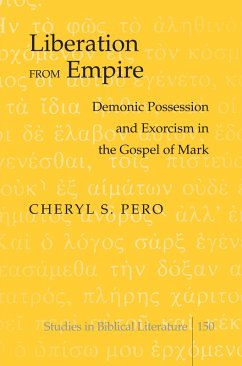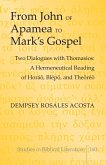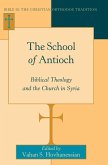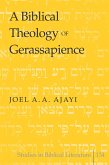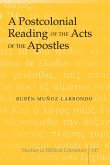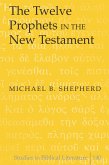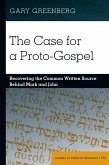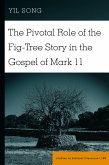For Mark, demonic possession was different from sickness or illness, and exorcism was different from healing. Demonic possession was totally under the control of a hostile non-human force; exorcism was full deliverance from a domineering existence that restored the demoniac to family, to community, and to God's created order. Jesus commissioned the twelve to be with him, to learn from him, and to proclaim the kingdom of God by participating with him in healing and exorcism. Jesus expands his invitation to participate in building the kingdom of God to all those who choose to become part of his new dyadic family even today.
Dieser Download kann aus rechtlichen Gründen nur mit Rechnungsadresse in A, B, BG, CY, CZ, D, DK, EW, E, FIN, F, GR, HR, H, IRL, I, LT, L, LR, M, NL, PL, P, R, S, SLO, SK ausgeliefert werden.
«Cheryl Pero has performed the great service in this work of exploring for us the many layers that make up the Gospel of Mark and the richness of its meaning for us today. She focuses on the first-century text and context with twenty-first century sensibilities - in such a way as to honor the integrity of the ancient work while at the same time she delivers a message that goes to the heart of our concerns today. This is nowhere clearer than her incredible success in showing how the often bizarre and misunderstood practice of exorcism functions to lay bare the bondages in which we humans live and point a way to liberation. Her sophistication in deploying narrative, social science, and post-colonial methodologies is a joy to behold. Thereby she sharpens our understanding of both the ancient text and the possibilities that the text opens up for contemporary readers. As a theologian who is not an expert in biblical exegesis, I find this work full of delightful surprises and exceedingly rich in its implications for contemporary understanding. Pero has changed the way in which I will read Mark.» (Philip Hefner, Lutheran School of Theology at Chicago)
«Cheryl Pero offers a careful, compelling and comprehensive treatment of the complex subject of demonic possession and exorcism in the Marcan gospel. The exegetical fruits of her work derived through the application of narrative, social scientific and postcolonial analyses are informative, enlightening, and instructive for contemporary times. The book is a must for all within and beyond those communities who are keen to explore and understand the phenomenon and its many implications.» (Monica J. Melanchthon, MCD University of Divinity)

